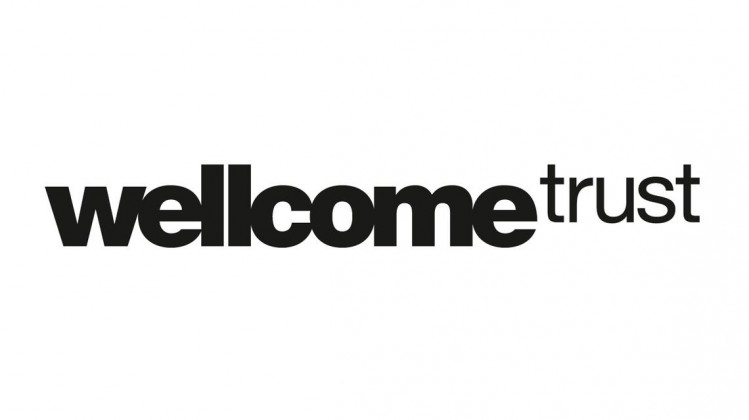The Wellcome Trust is a charitable foundation, based in the UK, which is focused on health research. We sat down with Director of Strategy Ed Whiting. Ed works across the organisation to ensure everyone is aligned to the overall strategic priorities. Let’s learn more…
Can you describe your role at Wellcome?
I’m Wellcome’s Strategy Director, and lead the programme to implement our new strategy. In practice this means working with teams across Wellcome as we start to build out expanded programmes to counter the risk of escalating infectious disease, ensure no one is held back by mental health problems, and mitigate the health impacts of global heating; all fuelled by a continuing commitment to open-call discovery science.
I also am responsible for our policy and government relations and strategic partnerships teams, brilliantly led by my colleagues Beth and Alex respectively – which gives me many opportunities to (virtually) interact with partner organisations who can help us (and us them) to achieve our mission. Finally, I’m Wellcome’s Executive Sponsor for Diversity and Inclusion.
What is your approach to strategy planning?
We didn’t follow any particular formal methodology to develop our strategy – as my colleague Jim Smith set out in his Science Review (which underpinned our new strategy), we spent a long time engaging with organisations around the world, and our own staff, to get their sense of Wellcome’s unique differentiating features and opportunities for impact. We then fleshed out four potential options to help us focus our funding strategy, and developed our chosen approach with teams from around Wellcome, so that our new strategy could reach beyond our funding to encompass public engagement, policy and advocacy, cultural activities and much else besides. I’ve blogged a bit on these steps as we’ve gone along – for example, here on how we see ourselves in the world.
How often do you review your strategy?
Historically, we’ve reviewed and refreshed our strategy approximately once every five years. We have designed our new strategy to guide our work over the next couple of decades or so, but within that I do expect that we’ll periodically come back to check that we’re on the right track and addressing our resources to the right challenges.
Do you have any KPIs that you monitor regularly as part of your role?
Between 2016-18 we developed the Wellcome Success Framework to help us understand the impact of our work and inform our strategic decisions. It’s really helped us understand how Wellcome-funded research is having an impact in the world – and we’ll build on it as we develop new organisational KPIs in support of our new strategy.
What is the Vision Statement for Wellcome?
Our new organisational vision is to ‘Support Science to solve the urgent health challenges facing everyone’.
How do you engage your employees with your strategy?
We have held regular staff workshops throughout the strategy development process, sharing the key upcoming choices as the process has continued to solicit feedback and input. We’re hugely fortunate to have an incredibly vibrant staff intranet which has been a really helpful tool to host conversations on the strategy as we’ve gone along – particularly once lockdown hit.
Looking back, have you made any key strategic mistakes?
There have been plenty of blind alleys that we’ve followed, conversations that haven’t really led anywhere, and experiments that haven’t quite come off in the way that we’d hoped. But I think, and hope, that most of this experimentation has been absolutely essential in helping us to understand where and how to focus our work.
How do you think Wellcome will continue to succeed and grow?
For me, there are a few key things that we’ll need to get right if we are to make the most of our new strategy:
First, while we are going to work to pursue a smaller number of much clearer goals in future, we cannot lose our core belief in the power of supporting open-mode discovery science to advance the frontiers of knowledge. It is discovery science that will enable us to leap ahead in our ability to confront global health challenges – and we must continue to create the culture and conditions where creativity, curiosity and enquiry can flourish, while simultaneously investing in translation, engagement and partnership to make sure these new discoveries reach the people who need them most at the greatest possible scale.
Second, we are hugely privileged in having the capacity to support many different activities in support of our mission (e.g. from discovery to translation, from the social to the physical sciences; from cultural engagement to policy and advocacy). For our new strategy to succeed it’ll be vital to coordinate and integrate these activities wherever appropriate, so that we can make an impact that is greater than the sum of our parts.
Finally, it goes without saying that we will continue to rely on the professionalism and prowess of our excellent Investment team to grow the financial capacity in our endowment that enables us to fund such breadth and scale of really exciting research.
Finally, what strategy tip would you give companies?
Make choices – identify what your organisation is for in the world and what you’re good at, and focus the organisation on that. Don’t try and do everything.
Thank you Ed!
Access our charity strategy templates
Let us show you how successful charities are driving impact with their strategy in Lucidity.










